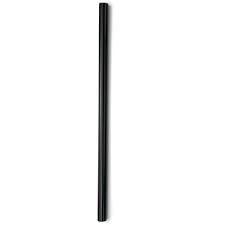pole
英 [pəʊl]
美 [poʊl]
- n. 杆;极点;电极
- vt. 用竿支撑
- n. (Pole)人名;(英)波尔;(俄)波列;(塞)波莱
使用频率:

记忆方法
1、pal- "stake, wooden post" => pole.
2、pol- + -e.
3、Poland => Pole.
2、pol- + -e.
3、Poland => Pole.
中文词源
pole 杆,棍
来自古英语pal,杆,桩,来自拉丁语palus,杆,桩,来自PIE*pag,固定,词源同pale,pile,pillar.拼写比较rule,regulate.
pole 地级,地轴来自拉丁语polus,地级,天空,来自希腊语polos,轴心,地轴,来自PIE*kwel,转,转动,词 源同cycle,wheel.
Pole 波兰人来自波兰语pole,土地,平原,来自PIE*pele,展开,词源同plan,plain.
英语词源
- pole
-
pole: There are two separate words pole in English. Pole ‘long thin piece of wood’ [OE] comes from a pre- historic Germanic *pāl- (source also of German pfahl, Dutch paal, and Swedish påla). This was borrowed from Latin pālus ‘stake’, from which English gets pale ‘stake’. Pole ‘extremity’ [14] was acquired from Latin polus, which in turn went back to Greek pólos ‘axis of a sphere’. This was a descendant of Indo-European *qwolo- ‘turn round’ (source of English wheel), and has also given English pulley. The derivative polar [16] is an anglicization of the modern Latin coinage polāris.
=> pale; polar, pulley, wheel - pole (n.1)
- "stake," late Old English pal "stake, pole, post," a general Germanic borrowing (Old Frisian and Old Saxon pal "stake," Middle Dutch pael, Dutch paal, Old High German pfal, Old Norse pall) from Latin palus "stake" (see pale (n.)).
Racing sense of "inside fence surrounding a course" is from 1851; pole position in auto racing attested from 1904. A ten-foot pole as a metaphoric measure of something one would not touch something (or someone) else with is by 1839, American English. The ten-foot pole was a common tool used to set stakes for fences, etc., and the phrase "Can't touch de bottom with a ten foot pole" is in the popular old minstrel show song "Camptown Races.""I saw her eat."
"No very unnatural occurrence I should think."
"But she ate an onion!"
"Right my boy, right, never marry a woman who would touch an onion with a ten foot pole."
["The Collegian," University of Virginia, 1839] - pole (n.2)
- "ends of Earth's axis," late 14c., from Old French pole or directly from Latin polus "end of an axis;" also "the sky, the heavens" (a sense sometimes used in English from 16c.), from Greek polos "pivot, axis of a sphere, the sky," from PIE *kwol- "turn round," from root *kwel- (1) "wheel; turn, roll around" (see cycle (n.)).
- Pole (n.)
- "inhabitant or native of Poland," 1650s, from German Pole, singular of Polen, from Polish Polanie "Poles," literally "field-dwellers," from pole "field," related to Old Church Slavonic polje "field," from PIE root *pele- (2) "flat, to spread" (see plane (n.1)).
- pole (v.)
- "to furnish with poles," 1570s, from pole (n.1). Meaning "to push with a pole" is from 1753. Related: Poled; poling.
权威例句
- 1. She is a pole dancer at London's famous Spearmint Rhino club.
- 她是伦敦著名的“薄荷犀牛”夜总会的钢管舞舞者。
- 2. The South Pole expedition proved to be staggeringly successful.
- 这次南极探险结果非常成功。
- 3. The north pole is slightly tipped towards the sun.
- 北极略微向太阳倾斜。
- 4. a flag high atop a pole
- 高挂在旗杆顶端的旗子
- 5. I didn't want to be low man on the totem pole for ever.
- 我不想永远当小人物。
